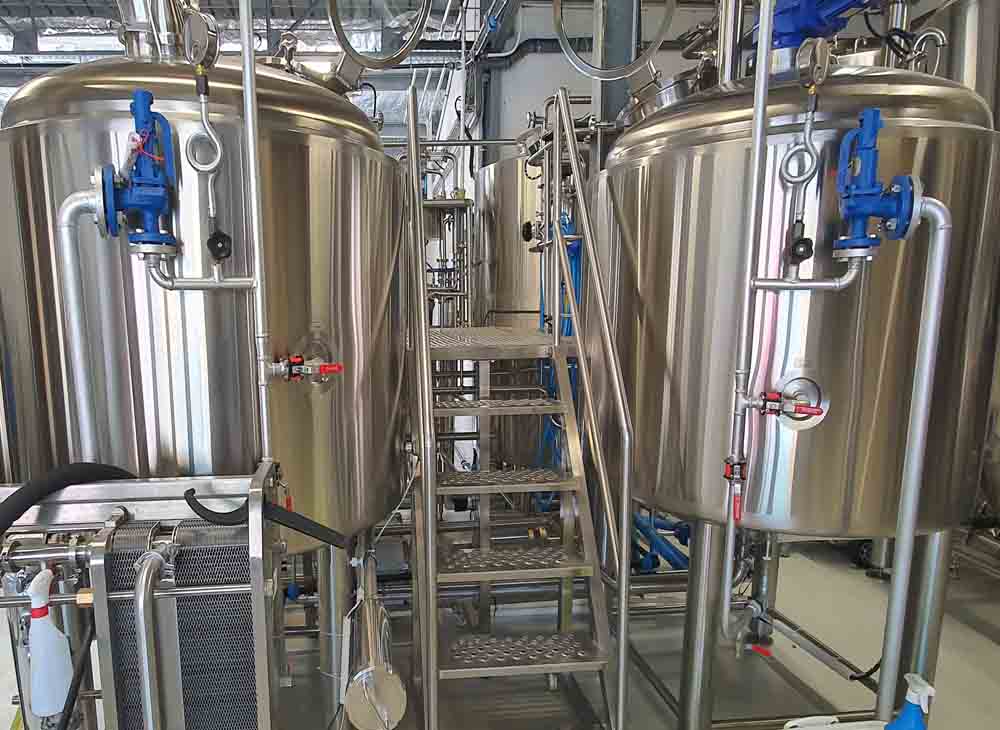Why occur foam channeling during boiling? How to prevent it?
- May 12, 2018
- 116
- beer
Why occur foam channeling during boiling? How to prevent it?
Under the boiling in the traditional brew kettle, the foam channeling is usually happens, just mean a large amount of foam flow out from the manhole. It is not only a beer loss, also easily to cause accidents. It mostly caused by incorrectly operation.
The lautering wort temperature generally at 75~78℃, the temperature will gradually goes down after entered the brew kettle. So the pre-heating should be started when the heater drowned by wort, the steam heating pressure cannot exceed 0.05Mpa. Keeping the wort temperature at nearly 80, now the residual enzyme still works. The steam heating pressure could be increased gradually along with the lautering and sparging, it could be raised to 0.08~-0.1Mpa, now the wort temperature at about 90℃. Sometime there are maybe some incorrect operation - Suddenly raise the steam pressure to 0.15~0.2Mpa when the sparging is almost finished, the boiling will come earlier before the lautering ended. Now the protein in wort start solidification and the foam are formed rapidly, a huge amount of foam flows out from the manhole. It is easily to cause accidents if it cannot be solved in time. The steam valve should be shut off quickly, or sparging the wort with high pressure cold water.
To prevent the foam channeling, a little amount of hops could be added at the beginning of boiling ( generally 5-15% of the total capacity), or sparging some cold water. The steam pressure better being controlled under 0.08Mpa before primary boiling.
Edited by Laura
Sales Manager in Tiantai Company
Email: [email protected]

Under the boiling in the traditional brew kettle, the foam channeling is usually happens, just mean a large amount of foam flow out from the manhole. It is not only a beer loss, also easily to cause accidents. It mostly caused by incorrectly operation.
The lautering wort temperature generally at 75~78℃, the temperature will gradually goes down after entered the brew kettle. So the pre-heating should be started when the heater drowned by wort, the steam heating pressure cannot exceed 0.05Mpa. Keeping the wort temperature at nearly 80, now the residual enzyme still works. The steam heating pressure could be increased gradually along with the lautering and sparging, it could be raised to 0.08~-0.1Mpa, now the wort temperature at about 90℃. Sometime there are maybe some incorrect operation - Suddenly raise the steam pressure to 0.15~0.2Mpa when the sparging is almost finished, the boiling will come earlier before the lautering ended. Now the protein in wort start solidification and the foam are formed rapidly, a huge amount of foam flows out from the manhole. It is easily to cause accidents if it cannot be solved in time. The steam valve should be shut off quickly, or sparging the wort with high pressure cold water.
To prevent the foam channeling, a little amount of hops could be added at the beginning of boiling ( generally 5-15% of the total capacity), or sparging some cold water. The steam pressure better being controlled under 0.08Mpa before primary boiling.
Edited by Laura
Sales Manager in Tiantai Company
Email: [email protected]





